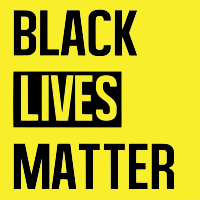The internet is a system build upon and propagated by distractions and diversions. Time, energy, and focus is spread thin across a multitude of different apps, sites, conversations, videos, articles, and too many other things to name. Overall, it is a system defined by quantity and variety, more than necessarily depth and quality. This is not a condemnation of the system, nor a ruling against any possibility of real depth and focus, but it is a common observation. These attributes extend not only to our media and entertainment, but our relationships as well. We create networks of “weak ties” with hundreds, if not thousands or even millions, of other individuals online. We might not know anything about them, but we are aware of them. This issue is central to Malcolm Gladwell’s argument in his essay “Small Change.”
In “Small Change” Gladwell classifies the new, online forms of activism and social “revolution” as ineffective and without real back. He argues that the large networks of weak ties provide length and large platforms for visibility and discourse, but no real incentive for change or action. Biblically speaking, one might say that he is arguing that the new, online forms of protest and activism are “faith without works.” I agree with this sentiment. While I do not believe that the social media technospehere has been entirely useless, or active in discouraging real movements, I believe that it allows for and indeed encourages a kind of awareness-based, fleeting, passive activism. And in case it wasn’t obvious, the phrase “passive activism” is a contradiction.
Gladwell cites the weaknesses of online activism as lack of real structure; a deficit of hierarchy and command structure due to the weak ties and shortage of active investment from users unilatterally. He states
“networks are messy: think of the ceaseless pattern of correction and revision, amendment and debate, that characterizes Wikipedia. If Martin Luther King, Jr., had tried to do a wiki-boycott in Montgomery, he would have been steamrollered by the white power structure. And of what use would a digital communication tool be in a town where ninety-eight per cent of the black community could be reached every Sunday morning at church? The things that King needed in Birmingham—discipline and strategy—were things that online social media cannot provide.” (Gladwell)
The lack of focused, concerted action is a direct result of the nature of the internet as a disorganized, ephemeral thing. However, this does not render the internet entirely useless in the ventures of activism.
I strongly agree with the idea that social media can be an amazing pathway for social awareness and discourse surrounding issues. It can be helpful as a communicative network to spread pathologies, connect distant communities, and allow for organization. DeRay McKesson cites these benefits in his interview by Kwame Opam, stating
“I think that we have to be open to new ways of organizing and new ways of building community. I’m mindful that we aren’t born woke, something wakes us up, and for so many people, what woke them up was a tweet or a Facebook post, an Instagram post, a picture. I never criticize people who [others] deem to be Twitter activists, or hashtag activists, because I know that telling the truth is often a tough act, no matter where you tell that truth. I think that’s important. I think that we’ll continue to see the platforms push and redefine the way we organize.” (Opam)
What is key here is his acknowledgement of social media’s “truth telling” qualities, or its communication. He cites it as a path for discourse and a potential system for organization. This connotates a still active need for organization and participation in the real world. He does not praise twitter or facebook as a system for change, but rather as a global soapbox to allow the progression of collective consciousness. But, going back to the biblical example, faith without works is dead. Awareness without action is useless.
| Source |
Take, for example, the Kony 2012 movement. This was a hugely successful and well-known online movement to raise awareness for and fight against Joseph Kony, a Ugandan War Criminal. In particular it was supossedly a fight against his use of child soldiers. The phrase “Kony” was on everyone’s lips, all over the television, internet, and magazines. Everyone was aware of it. Where is it now? Who do you know that took action against it. Marched against Kony? Petitioned their congressmen about Kony? Where is Kony now? Is he still using child soldiers? Who knows?
 |
| Source |
Compare this to the largely successful #BlackLivesMatter movement. They are similarly all over the media, in the cultural consciousness and in constant dialogue and discussion. They have progressed their agenda. They have fought for change. They have made a lasting impact. They started around 2012, with the killing of Trayvon Martin. They are still around. Why? They took action outside of social media. They used the internet to raise awareness and connect, to create discourse and start a dialogue, and then they organized. They march, they hold rallies, they hold donation events, they campaign. They are active. They are successful on social media because they are active in the real world.
Gladwell, Malcolm, “Small Change,” The New Yorker, 10/4/10, http://www.newyorker.com/magazine/2010/10/04/small-change-3 (viewed 5/3/17),
Opam, Kwame, “Building Tools for Digital Activism” 11/29/16, The Verge, http://www.theverge.com/a/verge-2021/deray-mckesson-interview-black-lives-matterdigital-activism (viewed 5/3/17)
No comments:
Post a Comment